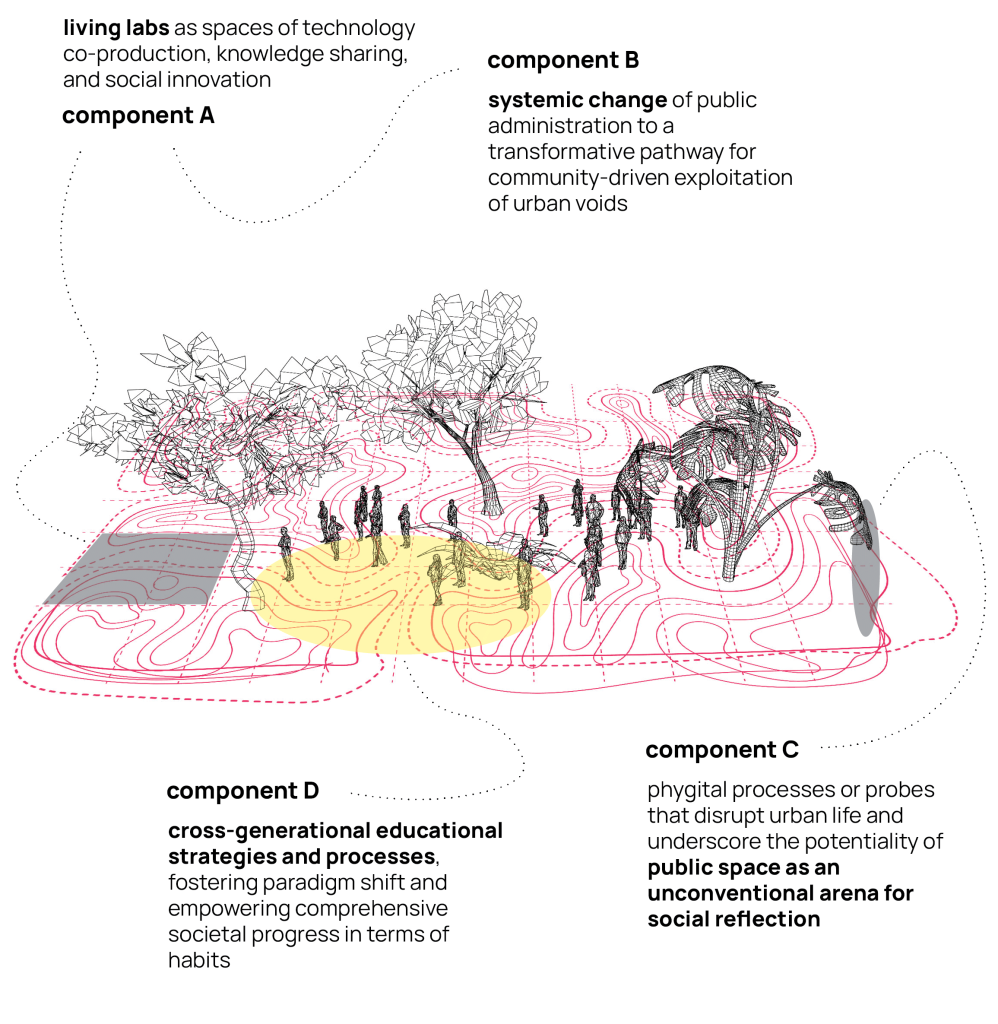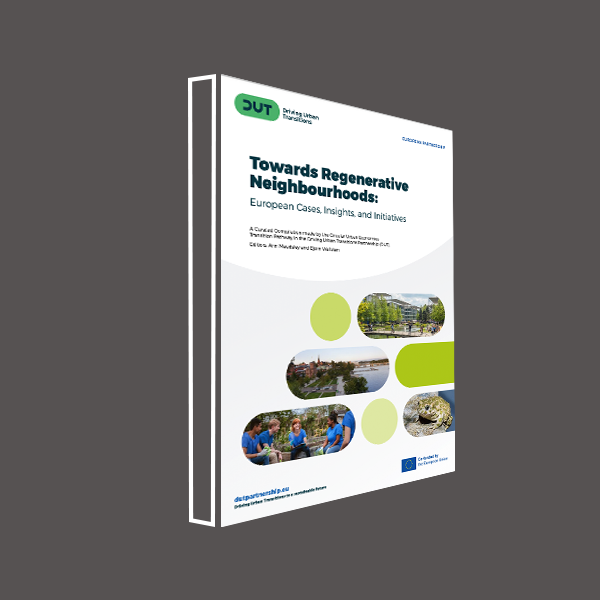An opportunity to reflect on our involvement in various research projects over the past 5 years, and to structure these experiences in a more comprehensive way into arguments.

Title: Regenerative Communities in Deprived Environments. An alternative vision for socio-spatial justice.
Authors: Vily Mylona, Giannis Zgeras, Gregory Tsardanidis, Yannis Efthymiou, Vasilis Vlachokyriakos
Abstract: Within the discourse of regenerative neighbourhoods, pivotal considerations involve integrating notions like resilience and environmental sustainability. But how effective is a paradigm that depoliticizes urban complexities and normalizes adapting to perpetual disruption? Departing from the mainstream discourse treating these concepts as static and technocratic solutions, we explore a paradigm shift towards establishing regenerative communities, focusing on participatory action research and design as catalysts for community-driven urban regeneration.
Elaborating and critically reflecting upon lessons from specific projects (CO3, NLAB4Cit, ge.CO, Public Toilet for Thoughts, Kalotrofa) of the research collective Open Lab Athens, this position paper envisions regenerative community as a framework for the emergence of urban commons. This framework addresses complex socio-spatial challenges and showcases the potential of these communities in fostering inclusive and socially just urban environments by gaining meaningful opportunities to exercise their voice. We build our argument on components from these projects, having as a core element the concept of living labs as spaces of technology co-production, knowledge sharing, and social innovation. Socio-spatial infrastructures, such as Living Labs, highlight the significance of collective decision-making by reinforcing urban commons and participatory tools. These spaces of experimentation also provide a model for the systemic change of public administration to a transformative pathway for community-driven exploitation of urban voids. Furthermore, phygital components that disrupt urban life underscore the potentiality of public space as an arena for social reflection in unconventional ways. Finally, cross-generational educational strategies and processes, fostering a paradigm shift and empowering the idea that any urban transition comes through comprehensive societal progress in terms of habits. This holistic approach to regenerative communities could represent not only a process of participation in urban transformations but also survival practices against gentrification and displacement.
Position paper published in the volume of DUT Partnership titled Towards Regenerative Neighbourhoods: European Cases, Insights, and Initiatives.
